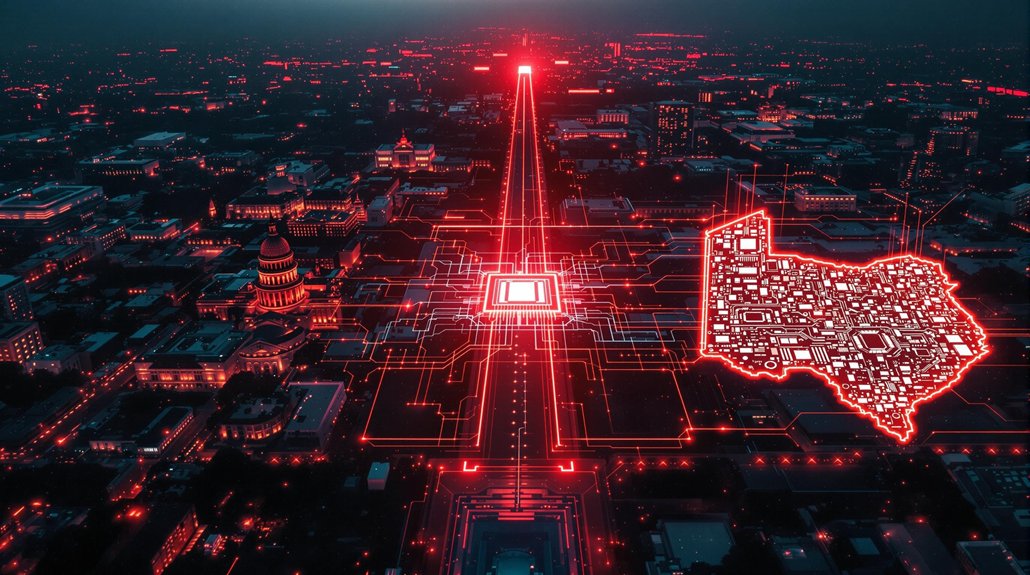While other states debate whether robots will steal their jobs, Utah went ahead and built the country’s first AI regulatory framework. The Artificial Intelligence Policy Act, passed in 2024, doesn’t mess around with vague promises or endless committee meetings. It actually does something.
The state created the Office of Artificial Intelligence Policy – yes, a permanent AI oversight office before anyone else thought to do it. Not a task force. Not a study group. An actual office with actual authority.
The 2025 amendments didn’t just tweak things either. They went after generative AI and mental health chatbots with specific rules that make Silicon Valley nervous.
Here’s where it gets interesting. Utah’s HB 452 forces AI mental health chatbots to announce they’re not human. Twice. Once when you start chatting and again if you ghost them for a week. No more pretending to be Dr. Phil.
The Division of Consumer Protection can slap companies with $2,500 fines per violation. That adds up fast. The Attorney General can pursue even steeper penalties of $5,000 for companies that violate enforcement orders.
The regulations target high-risk scenarios instead of suffocating all AI development. Medical advice? Mental health services? Those require disclosure. Selling shoes online? You’re probably fine. SB 226 and SB 332 even created a safe harbor for companies that clearly disclose AI usage during consumer interactions.
Utah figured out what California couldn’t – how to regulate without killing innovation entirely.
Utah cracked the code: regulate AI without strangling innovation to death.
Privacy protections actually have teeth here. Companies can’t sell your therapy session data to advertisers. Shocking, right? They need explicit consent, regular safety reviews, and written policies proving their chatbot won’t cause more harm than a real therapist.
Documentation isn’t optional. It’s mandatory and subject to inspection.
The 2025 amendments banned AI-generated impersonations and the tools used to create them. No more deepfakes of your ex. No synthetic identities scamming grandma.
Utah expanded existing impersonation laws to cover digital doubles.
While Congress debates AI ethics in abstract terms, Utah’s framework is already operational. The Office of Artificial Intelligence Policy balances innovation with protection, something federal lawmakers keep promising but never deliver.
Other states are watching, some copying Utah’s homework. The blueprint exists. Whether they’ll follow it remains uncertain.
With workplace monitoring becoming increasingly prevalent through AI systems, Utah’s approach could be a model for preventing unfair treatment and automated discipline of workers nationwide.
References
- https://le.utah.gov/~2025/bills/static/SB0226.html
- https://senate.utah.gov/issues/innovation
- https://www.dwt.com/blogs/artificial-intelligence-law-advisor/2025/04/utah-regulation-ai-policy-mental-health-chatbots
- https://www.manatt.com/insights/newsletters/health-highlights/utah-enacts-first-ai-law-a-potential-blueprint-f
- https://www.nucamp.co/blog/this-months-latest-tech-news-in-salt-lake-city-ut–wednesday-april-30th-2025-edition









